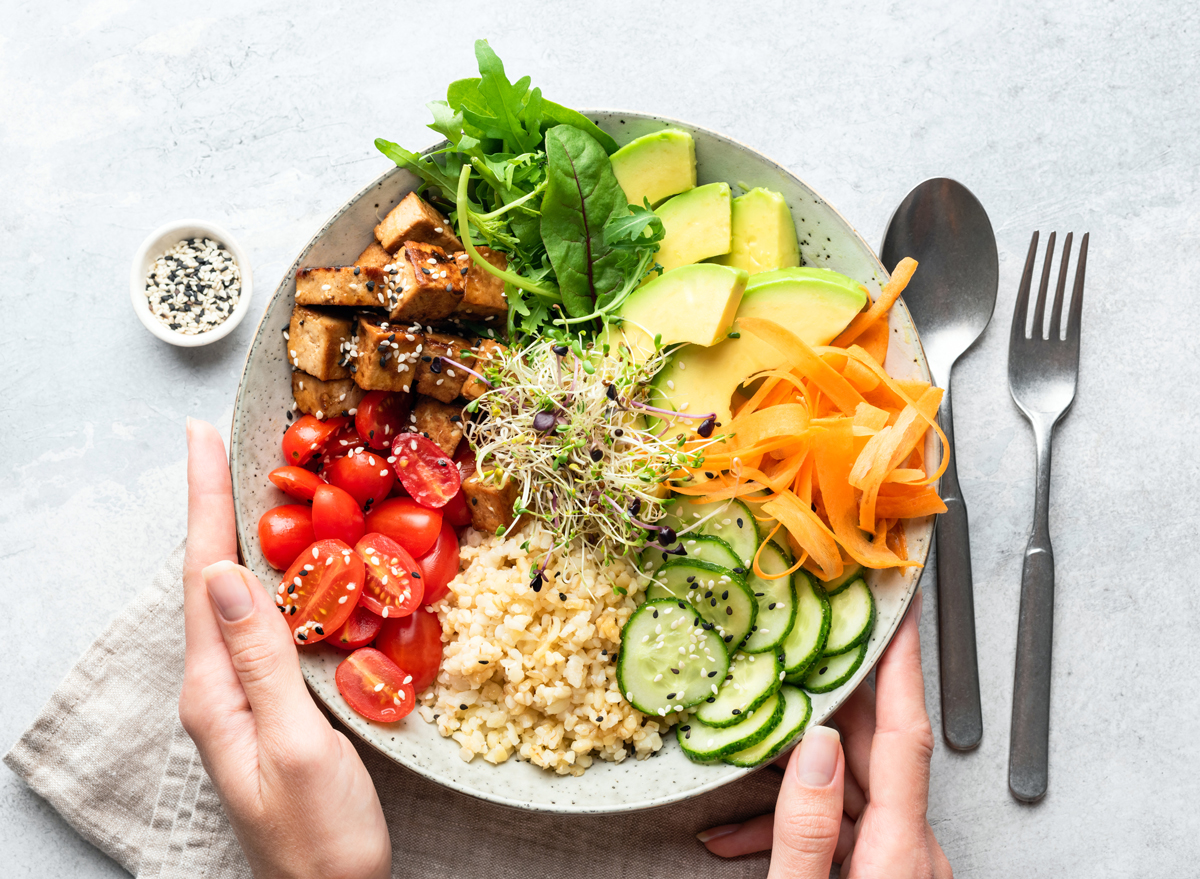The #1 Best Diet for Your Brain After 65, Says New Study

Protecting your brain as you age means making sure your gut is healthy, and plant-based foods rich in a substance called polyphenols as well as beneficial metabolites can be a boon for both, according to a new study published in the journal Molecular Nutrition & Food Research.
Participants who ate more polyphenol-packed foods and those with certain metabolites showed significantly lower risk of cognitive impairment and dementia as they aged. These include:
- Apples
- Blueberries
- Cocoa
- Coffee
- Green tea
- Mushrooms
- Oranges
- Pomegranates
- Red wine
“The takeaway from the study is that a higher intake of fruits, vegetables, and other plant-based foods provides polyphenols and other bioactive compounds that could help reduce risk of cognitive decline related to aging,” says study lead Cristina Andrés-Lacueva, Ph.D., from the Nutrition and Food Science Department at the University of Barcelona in Spain.
Not only do these foods seem to be protective on their own, but they may also work in concert together to boost brain health, she adds. That’s particularly true if they push out less-healthy dietary choices like artificial sweeteners, which proved to have a negative impact on cognitive impairment in the study.
According to Andrés-Lacueva, one of the most important aspects of this type of diet is the way it improves the beneficial bacteria in your gut. That connection between brain function and gut health is so robust that the gut is sometimes called “the second brain.” Chemical signals are constantly sent between the brain and digestive system, and these signals affect other aspects of the body as well, such as immune response and hormone regulation.
Not only can this gut-brain axis play a major role in cognitive protection, it can also be key for emotional health, says Lisa Mosconi, Ph.D., author of Brain Food: The Surprising Science of Eating for Cognitive Power.
“We often see that if one is thrown off, the other is affected, sometimes quite dramatically,” she says. “Of all the organs in our body, the brain is the one most easily damaged by a poor diet.”
The plant-based foods highlighted in the recent study can keep this connection strong, and Mosconi says adding fiber and probiotics can also support your brain function and gut health—especially as you age.
More stories about brain food:
- The Worst Eating Habits for Your Brain, Say Experts
- The #1 Best Diet for Your Brain Health, Say Scientists
- Popular Foods That May Improve Brain Health, Says Dietitian
To get all of the latest news delivered straight to your email inbox every day, don’t forget to sign up for our newsletter!








